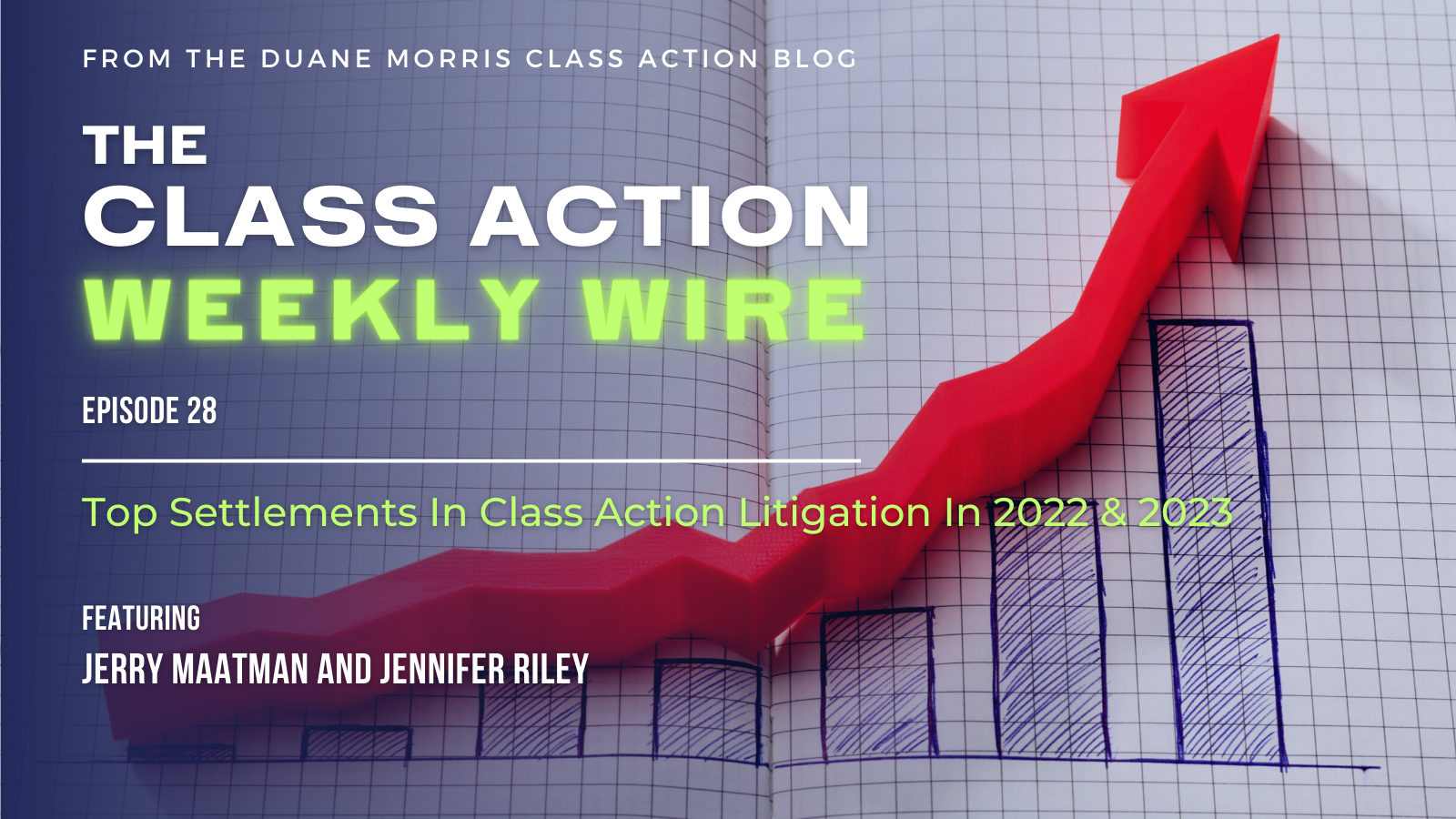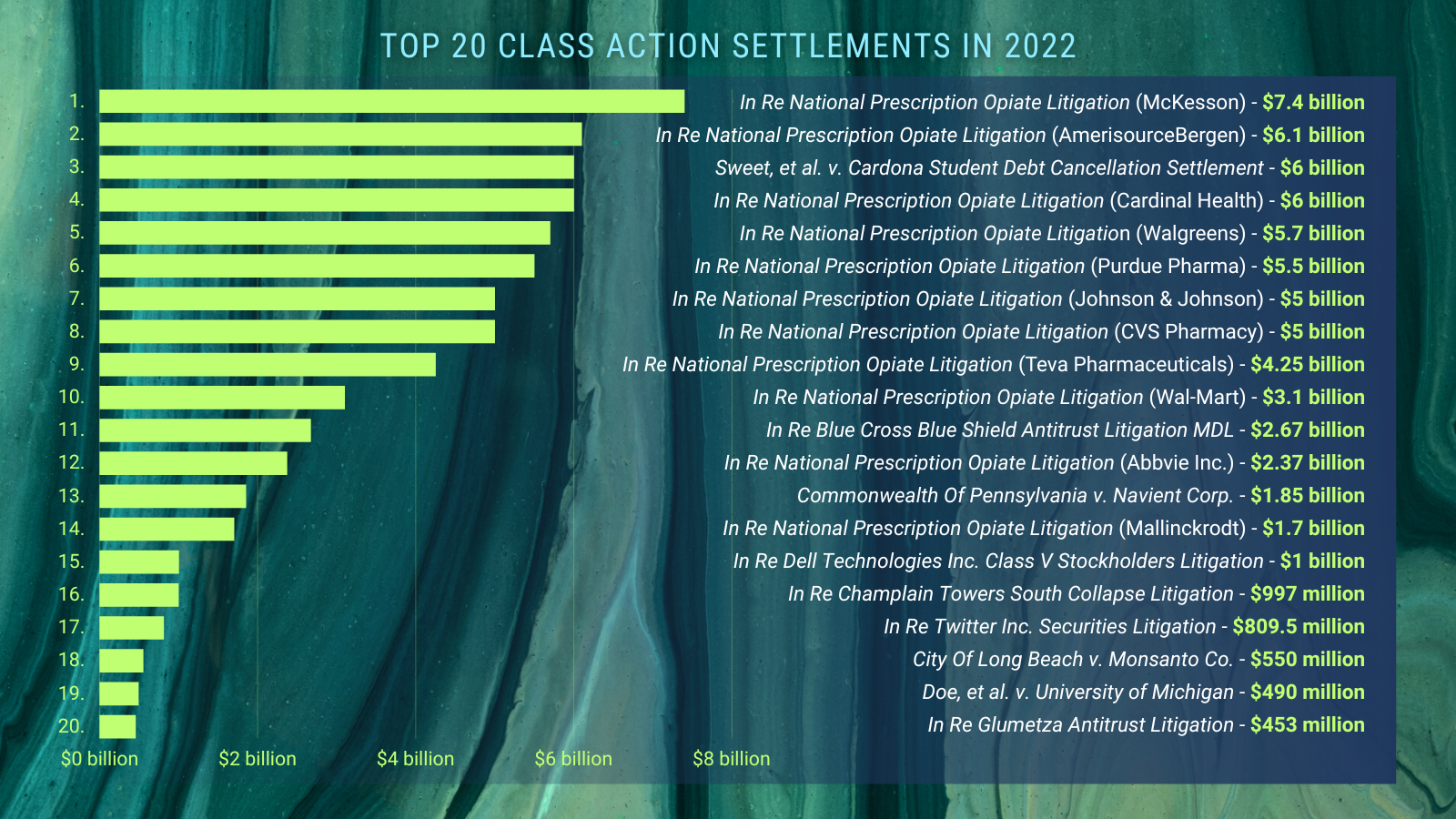 By Gerald L. Maatman, Jr., Jennifer A. Riley, and Emilee N. Crowther
By Gerald L. Maatman, Jr., Jennifer A. Riley, and Emilee N. Crowther
Duane Morris Takeaways: In a data breach class action entitled In Re T-Mobile Customer Data Security Breach Litigation, Nos. 23-2944 & 23-2798, 2024 WL 3561874 (8th Cir. July 29, 2024), the U.S. Court of Appeals for the Eighth Circuit overturned a district court’s order granting $78.75 million in attorneys’ fees for class counsel as part of the underlying approval of the class action settlement. The Eighth Circuit held that the district court abused its discretion by awarding class counsel an unreasonable attorneys’ fee award, and improperly striking a class member objection to that award.
This decision serves as an important reminder that, in class actions, unnamed class members who cannot opt out of a class can object to and appeal a district court’s approval of a settlement — which can inure to the benefit of both the class and the defendant.
Case Background
At some point before August 16, 2021, a cybercriminal breached T-Mobile’s systems, capturing personally identifiable information for an estimated 76.6 million people. Id. Various plaintiffs filed suits nationwide, and in December 2021, the suits were combined into a multidistrict litigation proceeding in the U.S. District Court for the Western District of Missouri. Id.
In January 2022, the Court appointed twelve attorneys to represent the class in various roles (“class counsel”), who then filed a joint complaint, and entered settlement discussions with T-Mobile. Id. at 7. A month after class counsel filed the complaint, the parties agreed to a settlement where T-Mobile would, among other items, create a $350 million fund from which individual class members could recover up to $25,000 for out-of-pocket losses they could prove resulted from the data breach, and $25 (or $100 if a member of the California sub-class) for all other class members who did not submit proof of loss. Id.
After the class was notified of the settlement, class counsel moved for a fee award of 22.5% of the $350 million settlement fund, or a total award of $78.75 million. Id. at 8. Thirteen class members filed objections to the settlement. Two of the objecting class members, Cassie Hampe (“Hampe”) and Connie Pentz (“Pentz”), contended that the amount of attorneys’ fees sought was too high. Id. The district court struck Hampe’s objection under Rule 12(f), finding that Hampe and her law firm were serial objectors, and that her objection was vexatious, brought in bad faith, and brought for the sole purpose of extracting a fee from the settlement fund. Id. at 9. The district court also struck Pentz’s objection under Rule 12(f) because Pentz’ son had previously filed frivolous objections to class action settlements and Pentz herself would not attend a deposition. Id.
Hampe and Pentz appealed. They argued that the district court erred in relying on Rule 12(f) to strike their objections, and that the class counsel’s fee award was unreasonable. Id.
The Eighth Circuit’s Decision
The Eighth Circuit found that the district court abused its discretion in striking Hampe’s objections to class counsel’s attorney’s fees request, and also by awarding class counsel unreasonable attorneys’ fees. Id. at 19. The Eighth Circuit also held that the district court did not abuse its discretion by striking Pentz’ objections. Id.
First, the Eighth Circuit found that the district court abused its discretion by relying on Rule 12(f) to strike the objections of both Hampe and Pentz. Id. at 10. While Rule 12(f) permits courts to “strike from a pleading . . . any redundant, immaterial, impertinent, or scandalous matter,” the Eighth Circuit reasoned that it did not permit the district court to strike a class member’s objection to a settlement, since it is not a pleading under Rule 7(a). Id. at 9-10.
Second, the Eighth Circuit acknowledged that while the district court had inherent authority to strike objections as a sanction for misconduct, the alleged misconduct asserted here only supported the district court striking Pentz’ objection — not Hampe’s objection. Id. at 10. For Hampe, the Eighth Circuit found that the district court abused its discretion in striking her objection because there was no evidence that either Hampe or her attorneys were attempting to extort a payout, acted vexatiously, broke any rules, or acted unethically. Id. As for Pentz, however, the Eighth Circuit held that it could not fault the district court for striking her objection, since Pentz had been covertly working with an attorney (despite initially stating that she was acting pro se), evaded service of a subpoena compelling her to sit for a deposition, and generally refused to cooperate with the district court’s discovery orders. Id. at 11.
Finally, the Eighth Circuit analyzed Hampe’s objection that the fee award was unreasonable. Id. at 12-19. In class actions, courts use two methods to calculate attorneys’ fees, including: (i) the “lodestar” method (where the court multiplies the number of hours the attorneys worked by their hourly rates); or (2) the percentage method (where the court awards a percentage of the fund that the attorneys helped recover). Id. at 12. While district courts have discretion to choose which method should apply, the Eighth Circuit underscored that district courts should focus on whether or not the fee is reasonable under Rule 23(h), and consider “the time and labor required,” “the amount involved and the results obtained,” and “awards in similar cases.” Id. at 12.
The Eighth Circuit ultimately held that the district court’s attorneys’ fee award was unreasonable and constituted a “windfall” for class counsel. Id. at 16. The district court, in an attempt to demonstrate that the attorneys’ fee award was reasonable, conducted a lodestar crosscheck and found that the lodestar “multiplier” was 9.6, meaning that class counsel would get paid about 9.6 times their customary hourly rates. Id. While district court found this multiplier was reasonable, the Eighth Circuit did not, citing its previous holding in Rawa v. Monsanto Co., 934 F.3d 862, 870 (8th Cir. 2019) (holding that a 5.3 multiplier was too high and amounted to a windfall for class counsel). Id.
Implications For Class Action Defendants
The Eighth Circuit’s ruling in In Re T-Mobile Customer Data Security Breach Litigation serves as an important reminder that class members have power to object to attorney fee awards. While only awarding reasonable attorneys’ fees to class counsel certainly inures to the benefit of the class, it also benefits the defendants in claims-made data breach settlements. When calculating the total “payout” for a defendant in a claims-made data breach settlement, an attorneys’ fee award is a hard cost that drives up a defendant’s total likely payout. However, reducing the attorneys’ fee, it leaves more in the settlement fund for class members to claim. As stated in the 2024 Duane Morris Class Action Review, claim rates in data breach class actions are between 1% and 10%. Accordingly, by raising the amount left in the settlement fund for the class members to claim, the total payout for a defendant will likely substantially decrease.










